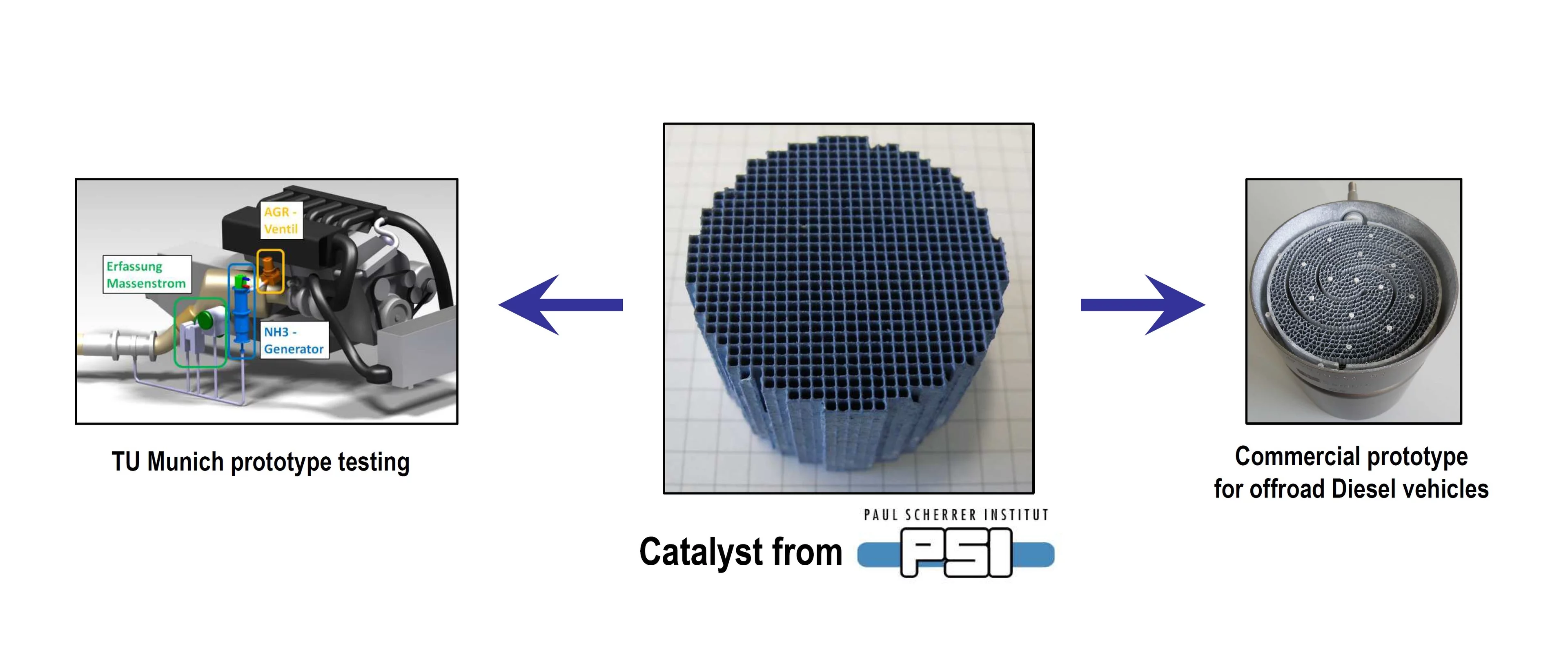Titaniumdioxide supported gold was found to catalyze the hydrolysis of formate-based ammonia precursor compounds which are proposed for the selective catalytic reduction of nitrogen oxides (NOx) in combustion exhaust gas. In contrast to other noble metals, the supported gold does not oxidize the released NH3, while it maintains decomposition of intermediate formic acid. Efficient formic acid decomposition is essential as it avoids the formation of side products which previously restricted the use of formate-based ammonia precursors. The stability of the catalyst under operating conditions was investigated by an accelerated hydrothermal aging treatment and sulfur poisoning. Both procedures affected the catalytic decomposition performance only to a small extent, which is unprecedented for supported gold catalysts.
The novel catalyst was implemented into an up-scaled prototype system of an ammonia generator for automotive applications and successfully tested in an exhaust gas aftertreatment system of a 3.0 L Diesel engine on an engine test bench at the Technical University of Munich. The system was then transferred to an industrial company and is currently tested for commercial utilization.


